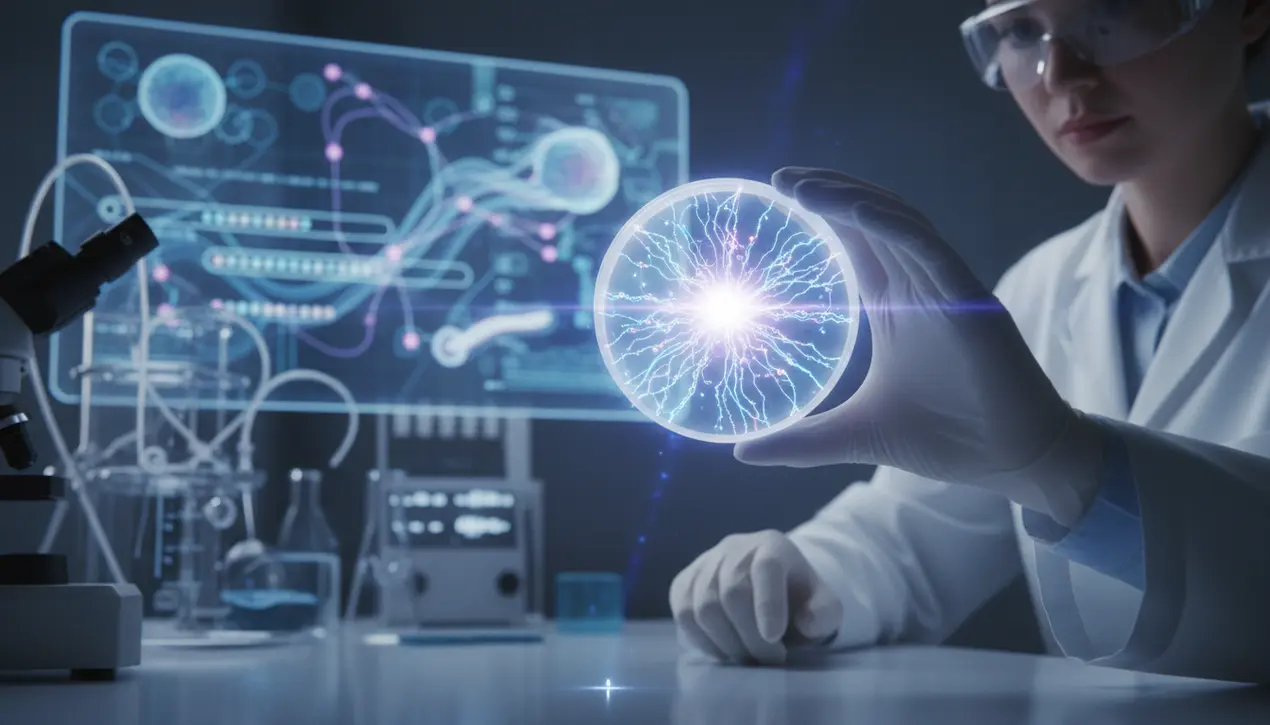
Scienceneuroscience
Scientists Engineer Adaptive, Brain-like Learning in Synthetic Bacterial Nanopores
KE
Kevin White
6 hours ago7 min read4 comments
In a breakthrough that merges synthetic biology with neuromorphic computing, researchers at the École Polytechnique Fédérale de Lausanne (EPFL) have engineered bacterial nanopores capable of brain-like learning. The team decoded the biophysical principles behind two critical nanopore behaviors—rectification, which governs ion flow direction, and gating, the pore's on-off switching mechanism.They discovered these processes are not random but are controlled by the dynamic interplay between electrical charges lining the pore's interior and the ions passing through it. This foundational insight enabled the creation of synthetic nanopores with a primitive form of synaptic plasticity.By designing pores with specific, modifiable charge patterns, the researchers made the nanopores' conductance and filtering properties adapt based on their ionic activity history. This represents a paradigm shift from passive biosensors to active, ion-based computational systems.The technology opens direct pathways to ultra-efficient, bio-inspired neuromorphic computers that process information using ions instead of electrons, mirroring the brain's adaptive and parallel architecture. Potential applications range from implantable diagnostic chips that learn a patient's unique biochemistry to environmental sensors with unprecedented sensitivity for detecting pollutants. Building on decades of nanopore research, this work moves beyond observation to programmable, malleable computation, signaling a new era where machines could process information with the fluid, dynamic intelligence of living cells.
#featured
#bacterial nanopores
#brain-like learning
#bio-inspired computing
#ion-based processors
#EPFL research
Stay Informed. Act Smarter.
Get weekly highlights, major headlines, and expert insights — then put your knowledge to work in our live prediction markets.
Related News
© 2025 Outpoll Service LTD. All rights reserved.
